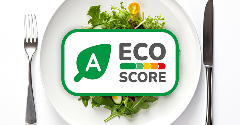News
Monterey Mushrooms gets EU approval for vitamin D-rich mushroom powder
16 Jun 2022
Monterey Mushrooms’ vitamin D-rich mushroom powder, produced using ultraviolet (UV) to boost the nutrient content, can be sold in the EU, following novel food approval from the European Food Safety Authority (EFSA).
Monterey Mushrooms, a California-based mushroom producer, has successfully received novel food approval from EFSA for its vitamin D mushroom powder, in line with Regulation (EU) 2015/2283.

Using UV light to create vitamin D-rich mushrooms
The product, branded Just Mushrooms, is a whole-food, vegan-friendly powder containing high levels of vitamin D. Created from US-grown and processed dehydrated mushrooms, the powder is available in a range of vitamin D levels, ranging from 125–375 µg/g.
Through a collaboration with the US Department of Agriculture (USDA), Monterey has developed a method of specially devised proprietary ‘sunlight’, which uses ultraviolet rays on Agaricus bisporus mushrooms, to replicate the vitamin D-rich sunlight that mushrooms require to grow, in an indoor environment. The UV light induces the conversion of provitamin D2 (ergosterol) to vitamin D2 (ergocalciferol).
This eliminates the need for additives, supplements, or chemicals often used during traditional mushroom production processes, all the while creating mushrooms which are high in vitamin D.
EFSA approved specifications of use
Following the EFSA approval, the mushroom powder can be used as an ingredient in a variety of foods and beverages in amounts that result in either 1.125 or 2.25 µg of vitamin D2 per 100 g or 100 ml of the food as consumed, EFSA confirmed in its scientific opinion.
Additionally, EFSA approved the ingredient for foods for special medical purposes (FSMPs) and meal replacement for weight control. According to the EFSA analysis, the maximum intended use level in FSMPs is 15 µg vitamin D2 per day and 5 µg vitamin D2 per meal, for products of this use intended for adult consumption.
Conversely, for infants (aged 7 – 11 months) and for children (aged over 1 year), a maximum of 10 µg vitamin D2 per day and of 15 µg vitamin D2 per day was authorised as per the approval.
Despite confirming the safe use of the ingredient in line with the above stated conditions of use, the Panel raised caution around the calculated combined exposure of vitamin D for the general population, in light of the recent growth in and popularity of vitamin D-fortified foods available on the market.
Consumers are looking to increase their vitamin D intake
Vitamin D is essential for maintaining good human health, yet studies show that more than one in four (42%) Americans do not have an adequate amount of it in their diets. Deficiency of vitamin D can have serious implications on health, including an increased risk of developing certain forms of cancer and diabetes, in addition to bone and muscular health problems such as arthritis and muscular sclerosis.
Over recent years, consumers across the globe have become more health conscious and are increasingly seeking ways to improve the nutritional value of their diets.
Given the clear health implications of vitamin D deficiency, the demand for supplements and products which allow consumers to add higher levels of concentrated vitamin D into their diet is on the rise. Between 2020 – 2021, vitamin D usage amongst US consumers grew from 42% – 52%, potentially as a result of studies highlighting the links between vitamin D intake and the effects of Covid-19.
Related news

UK Government overhauls childhood obesity strategy
21 Nov 2025
The UK Government has announced a new package of measures designed to reverse the nation’s childhood obesity epidemic following the release of statistics revealing the scale of the crisis.
Read more
How younger consumers are redefining ingredient choices and rejecting brand loyalty
18 Nov 2025
Gen Z and millennial consumers’ preferences for transparency, functionality, and purpose are “redefining the very nature of consumption itself”, says SPINS.
Read more
New UPF standard hoped to offer consumers ‘coherence and clarity’
10 Nov 2025
Ingredients companies are being urged to enter “a new era of partnership and innovation” following the launch of the industry’s first non-UPF verification scheme.
Read more
Ingredient quantities mislabelled on popular protein bars, independent tests show
5 Nov 2025
Some popular protein bars contain more fat, carbs, and/or sugars than claimed on their labels, independent nutrition testing reveals.
Read more
Does promoting protein content push up plant-based sales?
27 Oct 2025
Promoting the protein content of meat-free products is a more effective sales strategy than adding carbon labels, a study of UK bakery chain Greggs suggests.
Read more
Supplement shoppers seek storytelling and science-backed suppliers
17 Oct 2025
Supplement consumers want specific health benefits that focus on prevention and personalisation, according to data from HealthFocus International.
Read more
Food fraud risks rise as brands fight economic and environmental headwinds
10 Oct 2025
Climate change, geopolitics, regulations, and demand for sustainable products are pushing up food fraud and adulteration risks, warns a world-leading food fraud expert.
Read more
The growing appeal of nutrient-dense food claims
2 Oct 2025
Nutrient-dense claims are rising as consumers reject the “empty calories” of UPFs in favour of products that provide meaningful nutrition with every calorie, Mintel data shows.
Read more
What does MAHA mean for the US nutraceutical industry?
30 Sep 2025
Industry associations have expressed mixed reactions to new policy directions on health and nutrition under the Make America Health Again (MAHA) banner.
Read more
Eco-Score labels improve consumer identification of sustainable foods
22 Sep 2025
The presence of a front-of-pack Eco-Score label improves consumers' accuracy in identifying sustainable food products from 52% to 72%, a study suggests.
Read more